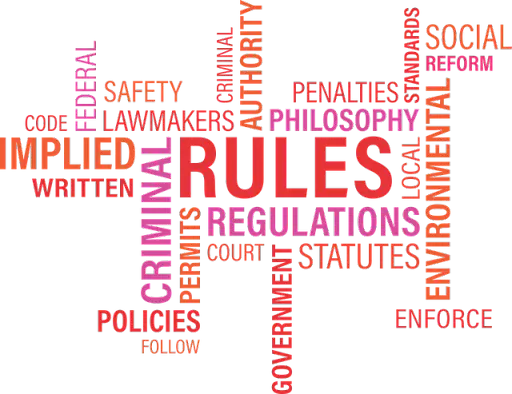Avoid the Top 5 Mistakes when Applying for an EB-1A Extraordinary Ability Green Card
- globaltalentlaw

- Jun 28, 2023
- 5 min read
Updated: Nov 6, 2023
Avoid the Top 5 Mistakes when Applying for an EB-1A Extraordinary Ability Green Card
Navigating the path to obtaining an EB-1 Green Card, which is designed for individuals with extraordinary abilities, can be a complex and challenging journey. The process demands a thorough understanding of the legal standards, a careful collection of compelling evidence, and meticulous attention to detail in the application. However, many applicants stumble along the way, making mistakes that can lead to delays, rejections, or even denials of their applications. In this blog, we will delve into the five common mistakes people make when applying for an EB-1 Green Card. By understanding these pitfalls, you can better prepare your application and increase your chances of success.

The mistakes we will discuss include:
Not working with an attorney
Misunderstanding the legal standard
Misunderstanding what kind of evidence meets the standards
Using weak arguments
Not including sufficient evidence for all aspects of the EB-1 case
Each of these mistakes can significantly impact the outcome of your application. Therefore, it's crucial to understand them and learn how to avoid them. Stay tuned as we delve deeper into each of these mistakes, providing insights and advice to help you navigate your EB-1 Green Card application process more effectively.

Mistake 1: Not working with an attorney
One of the common mistakes people make when applying for an EB-1 Green Card is not working with an attorney. The EB-1 Green Card application process is complex and requires a deep understanding of immigration law and procedures. Here's why not working with an attorney can be a mistake:
Understanding the Intricacies of the Law
Immigration law is complex and constantly evolving. An experienced immigration attorney stays updated with the latest changes and understands the intricacies of the law. They can guide you through the process, ensuring that you meet all the requirements and avoid potential pitfalls.
Navigating the Documentation
The EB-1 Green Card application requires a significant amount of documentation. This includes evidence of extraordinary ability in your field, such as awards, memberships in associations, published material about you, and more. An attorney can help you gather the right documents and present them effectively to strengthen your case.

Avoiding Errors and Delays
Even minor errors in your application can lead to delays or denial. An attorney can meticulously review your application to ensure accuracy and completeness. They can also help you respond effectively if the United States Citizenship and Immigration Services (USCIS) requests additional evidence or information.
Representing You in Proceedings
In some cases, you may need to attend interviews or proceedings with USCIS. An EB1 Visa Lawyer can prepare you for these situations and represent you, ensuring that your rights are protected.
Providing Personalized Advice
Every individual's situation is unique, and a one-size-fits-all approach may not work in immigration matters. An attorney can provide personalized advice based on your specific circumstances and goals.
While it's possible to apply for an EB-1 Green Card on your own, the stakes are high. Working with an attorney can increase your chances of success and make the process less stressful. Remember, the goal is not just to apply, but to get your application approved. An attorney can be a valuable partner in achieving this goal.

Mistake 2: Misunderstanding the legal standard.
Many people think that if you have been approved for an O-1, you qualify for the EB-1A green card. This is not true. The standard for EB-1 is much higher.
Here's why this misunderstanding can be detrimental:
The EB-1A green card and the O-1 visa for creatives, artists, and film and TV professionals have different requirements. For the O-1B, USCIS considers 6 criteria, while they consider 10 criteria for the EB-1A.
The EB-1A Green Card requires a higher level of achievement, which few can meet. Misunderstanding this difference can lead to an unsuccessful application.

Mistake 3: Misunderstanding What Kind of Evidence Meets the Standards for EB-1
Another common mistake made by applicants is misunderstanding what kind of evidence meets the standards for the EB-1 Green Card. What works for an O-1 application does not always work for a green card. For instance, some people believe that proving they have been well paid for a few projects meets the standard for showing high salary. This may be a successful argument for an O-1, but unlikely to win in an EB-1 petition. Another example is awards. Awards won at events such as smaller film festivals may be sufficient to meet the standard for an O-1, but for the EB-1, USCIS will only consider more significant award wins.

Mistake 4: Using Weak Arguments
The fourth mistake that applicants often make when applying for an EB-1 Green Card is using weak arguments and evidence. The EB-1 Green Card application process is rigorous and demands strong, compelling evidence to demonstrate extraordinary ability. Here's why using weak arguments can be detrimental:
Quality Over Quantity
In the EB-1 Green Card application process, quality trumps quantity. It's not about how much evidence you provide, but how compelling that evidence is. Providing a large volume of weak evidence is unlikely to strengthen your case. Instead, focus on providing high-quality evidence that clearly demonstrates your extraordinary ability.

Mistake 5: Not Including Sufficient Evidence for All Aspects of the EB-1 Case:
The fifth mistake that applicants often make when applying for an EB-1 Green Card is not including sufficient evidence for all aspects of the case. This includes not only the 10 criteria but also other important elements such as a compelling introduction, strong final merits determination, convincing evidence that you will continue to work in your field after the green card is approved, and proof that your permanent residency will benefit the U.S.
Compelling Introduction
The introduction to your EB-1 Green Card application is your chance to make a strong first impression. It should clearly and persuasively present your qualifications and the extraordinary ability that makes you eligible for the EB-1 Green Card. A weak introduction can undermine the rest of your application.
Strong Final Merits Determination
The final merits determination is a crucial part of the EB-1 Green Card application process. This is where USCIS evaluates all the evidence and determines whether it, in totality, shows that you have sustained national or international acclaim and that your achievements have been recognized in your field of expertise. Providing weak evidence or arguments can lead to an unfavorable final merits determination.
Continued Work in Your Field
One of the requirements for the EB-1 Green Card is that you must intend to continue to work in your field of extraordinary ability. You need to provide convincing evidence of this, such as a job offer, a detailed plan for future projects, or other proof of your ongoing commitment to your field.
Benefit to the U.S.
Finally, you need to demonstrate that your permanent residency will substantially benefit the U.S. This could be through economic contributions, cultural enrichment, scientific advancements, or other significant benefits. Simply stating this without providing evidence will not be persuasive.
In conclusion, it's crucial to provide strong, compelling evidence for all aspects of your EB-1 Green Card application, not just the 10 criteria. Remember, the goal is not just to meet the minimum requirements, but to present a strong, convincing case that clearly demonstrates your extraordinary ability and the value you bring to the U.S.
In conclusion, applying for an EB-1 Green Card is a complex process that requires a deep understanding of the legal standards, meticulous attention to detail, and compelling evidence. Avoiding the common mistakes we've discussed can significantly increase your chances of success. However, navigating this process alone can be challenging.
That's where the Global Talent Immigration Law Group comes in. Under the expert guidance of Liz Profumo, our managing attorney, we are dedicated to helping individuals with extraordinary ability navigate the immigration process. Our team has extensive experience and a deep understanding of the intricacies of immigration law, and we are committed to providing personalized, professional services to each of our clients.
If you're considering applying for an EB-1 Green Card, don't risk making these common mistakes. Reach out to the Global Talent Immigration Law Group to speak with an EB1 Visa Lawyer today. Let us guide you through the process, helping you avoid pitfalls and maximize your chances of success. Remember, the goal is not just to apply, but to get your application approved. With our help, you can make that goal a reality.





Comments